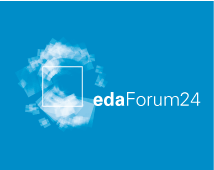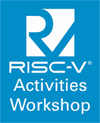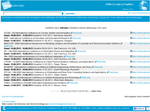Keynote: Design and Verification of Dependable Analog Systems
Lars Hedrich (University of Frankfurt)
Abstract
Today’s deep submicron technologies enable the implementation of multi core mixed-signal systems on chip with a reasonable part of analog blocks. These blocks have to be designed and verified in very short design cycles. On the other hand, failures in analog parts are costly, as they are not easily removed by reloading a firmware. In many cases analog circuits could inhibit the proper function of the whole chip due to their central role in clock generators or power supplies. Additionally, real push button solutions for analog synthesis and complete verification are not available resulting in high efforts in product development.
The situation is getting even worse with the upcoming aging and degradation effects. Therewith, the analog transistor parameters will not only vary with the fabrication process, they will also vary over circuit lifetime. The degradation is additionally signal dependent, turning the estimation of failure rates and lifetime into a difficult process.
The talk will give an overview about EDA concepts for tackling the verification problem in different ways. The presented concepts range from extended reliability simulation techniques to user-oriented formal verification techniques for analog systems. The latter attracts more interest since the verification of hybrid systems evolve rapidly enabling a high-level proof of mixed-signal systems. This is accompanied by some languages for formulating analog specifications.
Having these methods available, experimental design principles for dependable analog blocks as part of large systems on chip will be discussed. A possible implementation uses self organizing and self healing features to harden analog functionality at the cost of circuit size.
Curriculum Vitae
 Lars Hedrich is a full professor at the Institute of Computer Science, University of Frankfurt, where he is head of the design methodology group. He was born in Hanover, Germany, in 1966 and graduated (Dipl.-Ing.) in electrical engineering at the University of Hanover in 1992. In 1997, he received the Ph.D. degree and became an assistant professor at the same university in 2002, before he moved to Frankfurt in 2004. His research interests include several areas of analog design automation: symbolic analysis of linear and nonlinear circuits, behavioral modeling, automatic circuit synthesis, formal verification and robust design.
Lars Hedrich is a full professor at the Institute of Computer Science, University of Frankfurt, where he is head of the design methodology group. He was born in Hanover, Germany, in 1966 and graduated (Dipl.-Ing.) in electrical engineering at the University of Hanover in 1992. In 1997, he received the Ph.D. degree and became an assistant professor at the same university in 2002, before he moved to Frankfurt in 2004. His research interests include several areas of analog design automation: symbolic analysis of linear and nonlinear circuits, behavioral modeling, automatic circuit synthesis, formal verification and robust design.











